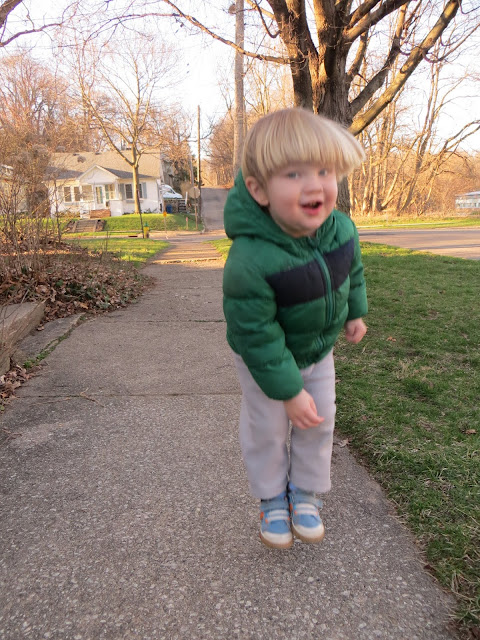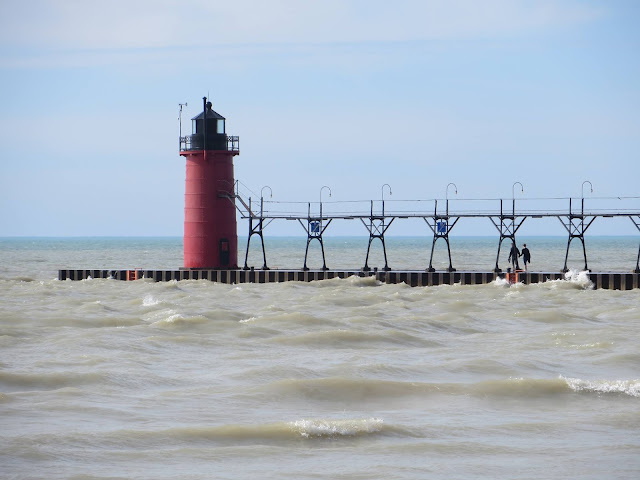The title above comes from the Timothy Egan book The Worst Hard Time: The Untold Story of Those Who Survived The Great American Dust Bowl. In our house, Egan is called Imothy, because a sticker covers part of his name on a book we own. I haven't read The Worst Hard Time, but as I've thought about what to write for a while now, how to offer something meaningful at this historic, tumultuous, grief-filled time, all while living with our sweet, endlessly rambunctious two-year-old, that title keeps coming to me.
We took a traditional beach trip with family, scheduled at a time when COVID case numbers were trending in the right direction, and undertaken with what might be described as cautious dread on my part. It was great to see everyone and wonderful to luxuriate in the ocean (with social distancing and mask culture fully in place anytime we left the house) but it was somewhat exhausting for me to engage in such a typically beloved activity as travel while contending with the reality of the pandemic. Our kids were saints (until we got home, then their demon sides came out) so it wasn't a problem keeping hands "han-i-tized" as Ellis says, or explaining what we couldn't do this year. Samantha is unbearably accepting about rules, and she mother-hens Ellis is wondrous ways, saving me time and good-guy credit, so that wasn't the complication. But where I normally kick up my feet and read magazines while Tim takes the wheel, driving through states and tunnels and mountains to our destination, I did all of those things without any of the usual lightness.
I did enjoy Lynne Cox's book Grayson, which details her experience helping a baby whale find its mother, one morning as Cox was doing a routine swim off the coast of California. I read Cox's Swimming to Antarctica: Tales of a Long-Distance Swimmer when we lived in Colorado and absolutely loved it. I wasn't sure Grayson would seduce me as much as Swimming to Antarctica, but it did. Cox was the first person to swim between the U.S. and the Soviet Union, shortly before the end of the Cold War, in 1987. The way she describes sea life is truly breathtaking. I also love how casually she discusses swimming for hours at a time. No biggie!
I also chewed through Samantha Irby's new book, Wow, No Thank You, which had the unintended benefit of making everyone in the room look at its bright green cover, with its cute bunny, then read the title and start laughing before they read a word. In an essay masquerading as a mix-tape she writes about first hearing Pearl Jam in seventh grade:
"I was enamored with this idea that love was difficult and stressful, and that torrid relationships fraught with passion and rage were exciting. This was, of course, before I knew how tiring life can be for an adult . . . . 'All the love gone bad turned my world to black'? Swoon city. Eddie was the perfect embodiment of Brokenhearted Sensitive Grunge Man; I lived for him then, and I still do. I would totally listen to him howl about his electric bill."
Then, because souls are a mystery and mine is shaped like a plaid-lined hunting lodge, I read Mariel Hemingway's memoir, Out Came the Sun: Overcoming the Legacy of Mental Illness, Addiction, and Suicide in My Family. My mom jokingly asked, "Fun read?" Ha! I mean, parts of it read like the celebrity memoir it is, but most of it had an admirably self-aware tone, due in no small part, I'm sure, to its ghostwriter, Ben Greenman. The actress talks about growing up in a family aware of her grandfather's long shadow, being cast in Manhattan when she was a teenager, and about Woody Allen inviting her on a trip, just the two of them. (Gross. She declined.) She writes with love and clarity about parents and siblings, and about the father of her children and the marriage that failed between them. I didn't follow Hemingway's career closely, but I found her accounts of it engaging, clear-eyed, and honest.
I read, along with Tim, our bookmarks moving back and forth in the same, slender copy, Gail Griffin's memoir of losing her husband, Grief's Country. I've long had an admiration for Griffin, a retired professor in our town who wrote a book about a murder-suicide on the small campus where she worked called The Events of October. My neighbor, a retired mail carrier who knows all the writers (and letter writers) in town, lent me a copy of The Events of October when we first moved in, and though the subject is grim and not something I'd normally gravitate toward, the writing was so clear, and the research so well-organized, that Griffin looms over my time in this town, not unlike the oddly comforting tower belonging to the still-functioning mental hospital.
Grief's Country is so masterfully lyrical, it does not feel like a memoir of grief so much as a poetic transcription of life. It's hard to describe, but from the first poem to the closing chapter, reading it felt like a form of prayer. I didn't want to miss a word, as in meditation, you don't want to miss a breath. Not that I'm getting any meditation "done" over here. Anytime I start to relax, it's like a bell rings in the other room and Ellis comes running across the floor, gleefully inquiring whether I'm "stretching." He then climbs onto me in some bizarre posture and starts butting me with his little ram head. As I try to do forward bends that don't squish his head against the floor, I think of something Tim once pointed out, while watching the awkward dance: no one with a toddler seeks out goat yoga.
Sometime this spring, when our library was still closed, I put Chris Rush's memoir The Light Years on hold and forgot about it. When the library opened, one of my favorite employees chastised me for trying to check out too many books, many items over the new, quarantine-friendly limit. This woman sat like a queen behind a giant sneeze guard. When I told Tim how amazing she looked, he joked, "The shield was already implied," because the regal condescension rolling off this woman is something to behold. But she checked out my books (god bless the queen!) and I gathered what was left after I returned the books I no longer wanted, having spent odd hours at night requesting books and movies I immediately forgot. What was left, after returning these, were five thousand Berenstain Bears books to take home for Samantha, and The Light Years, which I only dimly recalled.
Wow, was I delighted by what I found behind the pretty, neon cover. A book about drug addiction, Christian drug dealers, the American desert, Catholicism, growing up gay, a father full of hatred and his own trauma-turned-alcoholism, The Light Years was so surprisingly present, so impeccably-worded and warmhearted, I fell into my own addiction with it. I finished it one night as Tim put the kids to bed and I swung in the hammock, toes trailing the grass, face turned to the sky. It was truly mesmerizing, both because of Rush's focus on his family relationships and his restrained, whiz-bang prose. I was hooked from the moment I this description of his parents and the house they lived in:
"Finished in '56, our house was my father's midcentury masterpiece. Featured in newspapers and fashion shoots, our house was new, new, new! - no attic, no heirlooms, no trace of the past. Every detail was carefully managed by Norma Farrow Rush, the pale-skinned daughter of a taxidermist. She no longer had to do any dirty work for her father; the house was her shining rebuke."
Her shining rebuke! That will be the title of my poetry book, when it comes out.
That's all. Tim has a story in Quarterly West. You can read it here. I have a story in the forthcoming issue of Tampa Review (59/60). It's called Red Town and I only worked on it for, oh, about a decade. I'm beyond thrilled that it found a home, as they say, and more than that, I'm happy that one of its main characters, a postman who carries mail by mule, is finding delivery.
 |
| In the summer, frogs like to sneak into our house. Tim found this guy early one morning. |















































